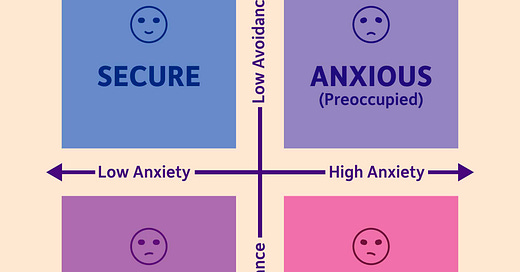Attachment style influences disclosure patterns in donor conception
The influence of avoidant attachment and perceived support on disclosure about involvement in donor-assisted conception to family and friends (Rodino, 2023)
Rodino, I. S., & Sanders, K. A. (2023). The influence of avoidant attachment and perceived support on disclosure about involvement in donor-assisted conception to family and friends. Human Reproduction, 38(4), 644-654. https://doi.org/10.1093/humrep/dead019
Geographic Region: Australia
Research Question: Do attachment-related dimensions (Anxiety and Avoidance) and perceived partner/social support influence how recipients and donors disclose their involvement in donor-assisted conception to others?
Design: Online self-report questionnaire fielded from June 2014 to June 2017. Anonymous questionnaire with five sections: Demographics, Donor Conception and Disclosure Practices, Experiences in Close Relationships-Relationships Structure, Quality of Relationship Inventory, and Multidimensional Scale of Perceived Social Support. analysis included Pearson correlations, independent samples t-tests, Chi-square, and ANOVA.
Sample: 209 female recipient parents, of which 104 had successfully conceived via donated gametes and 105 were still trying to conceive. 92 total donors, of which 36 donated sperm, 48 donated eggs, and 8 donated embryos. Participants were recruited through websites hosted by donor conception support groups, reproductive technology councils, counseling associations, and fertility clinics.
Key Findings
People who are more emotionally distant or uncomfortable with close relationships (avoidant attachment) tended to tell fewer people about their involvement with donor conception. Even when they had good support from their partner, they still shared less with family and friends.
Almost everyone in the study (over 90%) believed children should be told about being donor-conceived. This was true for both donors and recipients.
The people who participated in this study were generally more comfortable with close relationships than the average person. They showed healthier attachment patterns than what researchers typically see in the general public.
People who were uncomfortable with emotional closeness also felt they had less support from their partner and others in their life. The more someone avoided emotional connections, the less supported they felt.
Single women were more open about using donor conception than couples (both heterosexual and same-sex couples). They were more likely to tell family and friends about their experience.
Most participants told at least some people about their involvement with donor conception, with only a small number (about 4% of recipients and 5% of donors) keeping it completely secret.
People were more likely to tell close friends about donor conception than they were to tell their fathers or in-laws.
Limitations: Cross-sectional design prevents causal inferences. People with avoidant attachment may have opted not to participate.
Applications: Suggests family attachment patterns may influence disclosure experiences.
Funding Source: Not specified
Lead Author: Iolanda S. Rodino is affiliated with the Medical School at The University of Western Australia, specializing in research on psychological aspects of assisted reproduction.
Regulatory Context
The National Health and Medical Research Council (NHMRC) provides ethical guidelines for assisted reproductive technology (ART), including donor conception.
Each state and territory has its own laws governing donor conception, which can lead to some variation across the country.
Since the early 2000s, most states have moved away from anonymous donation. Donor-conceived individuals generally have the right to access identifying information about their donors once they reach a certain age (usually 18).
Many states limit the number of families a single donor can contribute to, to reduce the risk of inadvertent consanguineous relationships.
Most jurisdictions require counseling for donors and recipients before proceeding with donor conception.
Several states maintain central registries with information about donors and donor-conceived individuals.
It's illegal to pay donors for their gametes (eggs or sperm) beyond reasonable expenses.




Interesting! It makes me wonder how considering attachment style might impact discussions on sensitive DC related topics amongst DC triad members (e.g., early donor contact) might help us communicate better as a community. Also (and perhaps people have already studied this in another context) I'm curious how infertility-related trauma and/or stress might impact people's attachment style (or apparent attachment style) in the short or long term.